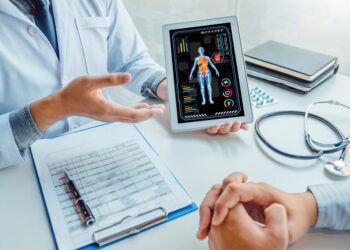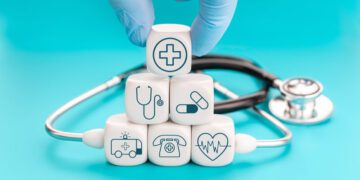In today’s increasingly interconnected and digitalized world, technology plays a crucial role in shaping and advancing healthcare. From remote patient monitoring to artificial intelligence-powered diagnostics, technology is revolutionizing the way healthcare providers deliver services. This article delves into the multifaceted role of technology in modern healthcare, exploring both the transformative impact and the challenges that come with embracing technological innovations.
Technological Advances in Healthcare
1. Telemedicine and Remote Monitoring
Telemedicine has democratized healthcare by providing remote consultations, enabling patients to receive medical advice and care without physically visiting a clinic. Remote monitoring tools also allow healthcare providers to track patients’ vital signs and chronic conditions from a distance.
2. Artificial Intelligence (AI) and Machine Learning
AI and machine learning are increasingly being used for predictive analytics, diagnostics, personalized treatment plans, and administrative tasks. Algorithms can analyze vast amounts of data to detect patterns and provide insights that might be beyond human capabilities.
3. Wearable Technology
Wearable devices such as smartwatches and fitness trackers not only promote health awareness among individuals but can also provide real-time data to healthcare providers. These insights can be vital in managing chronic conditions or preventive care.
4. Robotics and Automation
Robotic technology is making waves in surgery, with robots assisting in complex procedures, ensuring precision and control. Automation also streamlines administrative tasks, improving efficiency and reducing errors.
5. 3D Printing
3D printing has transformed prosthetics, implants, and even the creation of biological tissue. It enables customization to patient-specific needs and can significantly reduce manufacturing time and costs.
6. Blockchain Technology
Blockchain offers a secure and transparent way to manage patients’ medical records, enhancing data integrity and accessibility.
Benefits of Technology in Healthcare
Enhanced Accessibility: Technology breaks down geographical barriers, making healthcare accessible to remote and underserved populations.
Improved Accuracy: AI and machine learning can provide highly accurate diagnoses, reducing human error.
Personalized Care: Technology enables personalized treatment plans tailored to individual patient needs.
Cost-Effectiveness: Automation and remote care can lead to cost savings for both healthcare providers and patients.
Preventive Care: Continuous monitoring and data analysis can aid in preventive care by identifying potential health issues before they become critical.
Challenges and Ethical Considerations
Data Security and Privacy: The collection and storage of sensitive medical data raise serious concerns about privacy and security.
Accessibility and Inequality: There may be a digital divide where underserved populations lack access to technology-driven healthcare solutions.
Regulatory Compliance: Navigating the regulatory landscape related to healthcare technology can be complex.
Potential Job Displacement: Automation and AI might lead to job displacement within administrative and even diagnostic roles.
Conclusion
The integration of technology in healthcare has ushered in an era of enhanced accessibility, efficiency, and personalization. However, these advances also bring challenges that must be thoughtfully addressed.
Ensuring that technology serves the broader goals of equity, ethical practice, and patient-centric care will require collaboration between technologists, healthcare providers, policymakers, and patients.
The journey towards fully realizing the potential of technology in healthcare is ongoing, but the progress thus far is promising. As innovations continue to emerge, they pave the way for a future where healthcare is more responsive, adaptive, and aligned with the unique needs and values of those it serves. The marriage of technology and healthcare not only reshapes medical practice but also redefines the very essence of care in the modern world.




















